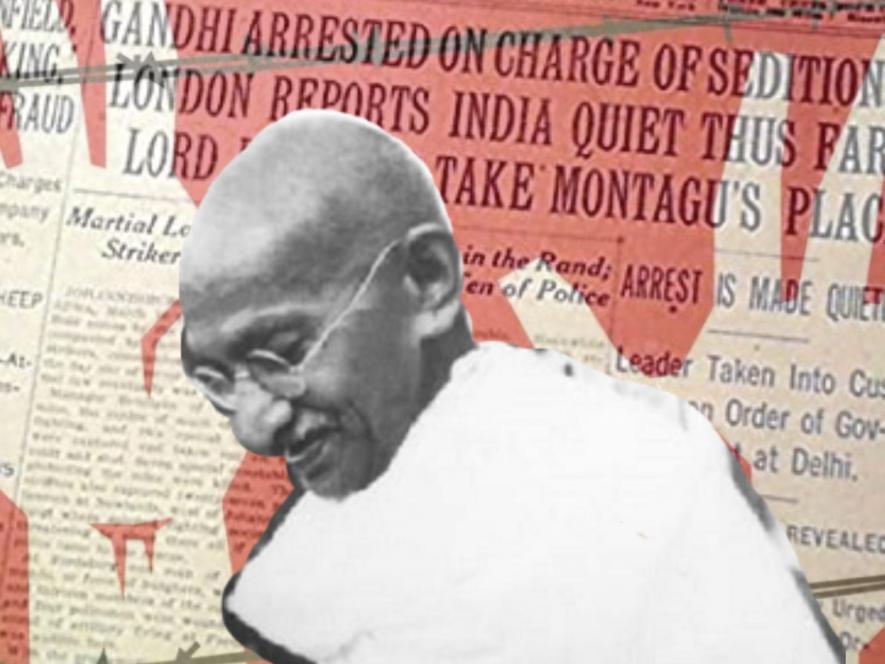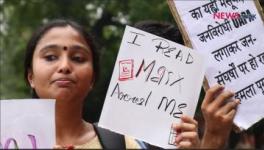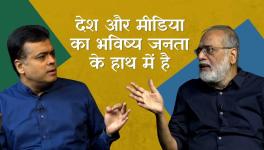Message from Gandhi: Sedition Law is ‘Designed to Suppress the Liberty of the Citizen’

“Affection [towards a system] cannot be regulated or manufactured by law"
-M K Gandhi
About a hundred years ago on 18th March 1922, Gandhi faced a trial in a sessions court in Ahmedabad. The charge against him was of “bringing or attempting to excite disaffection towards His Majesty’s government established by law in British India.” Section 124A of the Indian Penal Code, a criminal code drafted and enacted by the British colonial government about half a century before this trial, criminalised any speech that incited or attempted to incite ‘disaffection’ against the government.
During the trial, even as Gandhi pleaded guilty of the offence, he strongly expressed his criticism against section 124A. According to Gandhi this section was “the prince among the political sections of the Indian Penal Code designed to suppress the liberty of the citizen.” In his speech at the trial, Gandhi said, “Affection cannot be manufactured or regulated by law. If one has no affection for a person or system, one should be free to give the fullest expression to his disaffection, so long as he does not contemplate, promote, or incite to violence.” The British government in India had brutally used this law to suppress the emerging anti-colonial movement in India.
Hundred years since this trial, Section 124A still survives in India’s penal code. The successive governments in post-colonial India have used this law as a tool to suppress dissent and criminalise free speech. Sedition continues to be used to target activists, artists, students, academicians or anyone who criticizes the government. Data shows that sedition cases have increased in recent years. Between 2016 to 2018 the number of sedition cases in India doubled. While the number of sedition cases keep increasing, the conviction rate under this law is very low. Between 2016 to 2018 there were only four convictions.
From Our Archives: Some of the sedition cases in recent years reveal how the law is used to target voices speaking against the government.
Bidar Sedition Case: Two women spend more than 14 days in custody
The Sedition Trial Of Investigative Editor Dhaval Patel
Sedition charges against 51 including transgender activist for chanting pro-Sharjeel slogans
Sedition criminalises any speech or expression that brings or attempts to bring hatred, contempt or disaffection towards the government established by law in India. In the judgment of Kedarnath V State of Bihar the government narrowed the scope of section by restricting it only to cases where there is incitement to violence. The police still carry out the investigation with ignorance to the Supreme Court judgment. Section 124A proves a valuable tool for stifling dissent as the offence is non-bailable, the trial goes on for years and the process itself becomes punishment.
Excerpts from Gandhi's speech at the trial are often quoted when a debate around the law of sedition erupts. Yet, the message that it holds, not only with respect to the sedition law but for the importance of resistance at large, fails to register. If Gandhi termed section 124A of IPC the prince among the laws designed to suppress liberty, one wonders what he would think of laws such as Unlawful Activities Prevention Act (UAPA) under which scholars and activists continue to be detained without trial.
From Our Archives: Some of the sedition cases in recent years
Sedition and FIRs charged against celebrities who wrote against mob lynching
Sedition Charges on Hiren Gohain, Others an Attempt to Gag Voices Against Citizenship Bill
Pathalgarhi Movement: In Massive Crackdown, 250 Tribals Booked Under Sedition
Bastar Journalist Kamal Shukla booked on Sedition charges
At present, as we continue to witness an unprecedented clampdown on free speech and dissent in India, the spirit of nonviolent resistance in Gandhi’s speech finds relevance. One of the renowned lawyers of the country, Prashant Bhushan, also quoted Gandhi from the very same speech as the court was about to sentence him for contempt. He said “I do not ask for mercy, I am here, therefore, to invite and submit cheerfully to the highest penalty that can be inflicted upon me for what in law is deliberate crime, and what appears to me to be the highest duty of a citizen.”
Get the latest reports & analysis with people's perspective on Protests, movements & deep analytical videos, discussions of the current affairs in your Telegram app. Subscribe to NewsClick's Telegram channel & get Real-Time updates on stories, as they get published on our website.
























